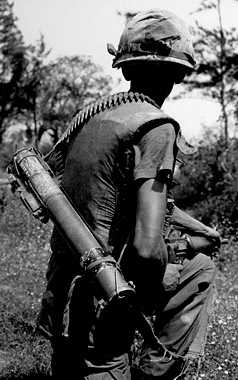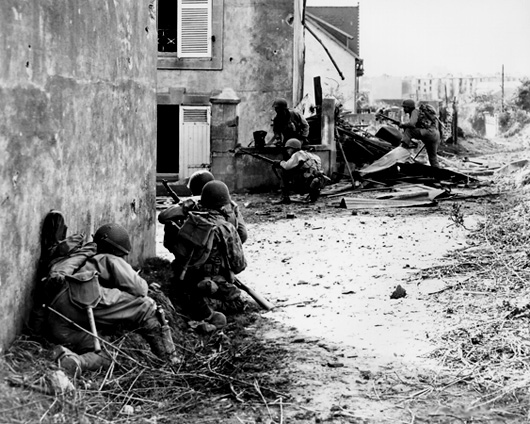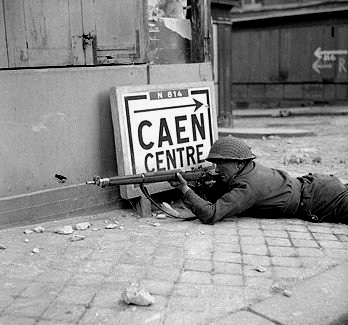Tim O'Brien (born 1946)
When she was nine, my daughter Kathleen asked if I had ever killed anyone. She knew about the war; she knew I'd been a soldier. "You keep writing war stories," she said, "so I guess you must've killed somebody." It was a difficult moment, but I did what seemed right, which was to say, "Of course not," and then to take her onto my lap and hold her for a while. Someday, I hope, she'll ask again. But here I want to pretend she's a grown-up. I want to tell her exactly what happened, or what I remember happening, and then I want to say to her that as a little girl she was absolutely right. This is why I keep writing war stories:
Or to go back:
Shortly after midnight we moved into the ambush site outside My Khe. The whole platoon was there, spread out in the dense brush along the trail, and for five hours nothing at all happened. We were working in two-man teams--one man on guard while the other slept, switching off every two hours--and I remember it was still dark when Kiowa shook me awake for the final watch. The night was foggy and hot. For the first few moments I felt lost, not sure about directions, groping for my helmet and weapon. I reached out and found three grenades and lined them up in front of me; the pins had already been straightened for quick throwing. And then for maybe half an hour I kneeled there and waited. Very gradually, in tiny slivers, dawn began to break through the fog; and from my position in the brush I could see ten or fifteen meters up the trail. The mosquitoes were fierce. I remember slapping them, wondering if I should wake up Kiowa and ask for some repellent, then thinking it was a bad idea, then looking up and seeing the young man come out of the fog. How does the imagery help to establish the setting and mood in this flashback? He wore black clothing and rubber sandals and a gray ammunition belt. His shoulders were slightly stooped, his head cocked to the side as if listening for something. He seemed at ease. He carried his weapon in one hand, muzzle down, moving without any hurry up the center of the trail. There was no sound at all--none that I can remember. In a way, it seemed, he was part of the morning fog, or my own imagination, but there was also the reality of what was happening in my stomach. I had already pulled the pin on a grenade. I had come up to a crouch. It was entirely automatic. I did not hate the young man; I did not see him as the enemy; I did not ponder issues of morality or politics or military duty. What does this statement reveal about the narrator's attitude toward the war? I crouched and kept my head low. I tried to swallow whatever was rising from my stomach, which tasted like lemonade, something fruity and sour. How do these sensory details enhance the intensity of the action? I was terrified. There were no thoughts about killing. The grenade was to make him go away--just evaporate--and I leaned back and felt my mind go empty and then felt it fill up again. I had already thrown the grenade before telling myself to throw it. The brush was thick and I had to lob it high, not aiming, and I remember the grenade seeming to freeze above me for an instant, as if a camera had clicked, and I remember ducking down and holding my breath and seeing little wisps of fog rise from the earth. The grenade bounced once and rolled across the trail. I did not hear it, but there must've been a sound, because the young man dropped his weapon and began to run, just two or three quick steps, then he hesitated, swiveling to his right, and he glanced down at the grenade and tried to cover his head but never did. It occurred to me then that he was about to die. I wanted to warn him. The grenade made a popping noise--not soft but not loud either--not what I'd expected--and there was a puff of dust and smoke--a small white puff--and the young man seemed to jerk upward as if pulled by invisible wires. He fell on his back. His rubber sandals had been blown off. There was no wind. He lay at the center of the trail, his right leg bent beneath him, his one eye shut, his other eye a huge star-shaped hole.Why has O'Brien structured this section starting from “Shortly after midnight… a huge star-shaped hole” as one long paragraph? How does it enhance the rest of the story's structure?

"I had already pulled the pin on a grenade. I had come up to a crouch. It was entirely automatic. I did not hate the young man; I did not see him as the enemy"
It was not a matter of live or die. There was no real peril. Almost certainly the young man would have passed by. And it will always be that way. What is the meaning of this statement?
Later, I remember, Kiowa tried to tell me that the man would've died anyway. He told me that it was a good kill What does Kiowa mean when he calls the man's death "a good kill"?, that I was a soldier and this was a war, that I should shape up and stop staring and ask myself what the dead man would've done if things were reversed.
None of it mattered. The words seemed far too complicated. All I could do was gape at the fact of the young man's body.
Even now I haven't finished sorting it out. Sometimes I forgive myself, other times I don't. In the ordinary hours of life I try not to dwell on it, but now and then, when I'm reading a newspaper or just sitting alone in a room, I'll look up and see the young man coming out of the morning fog. I'll watch him walk toward me, his shoulders slightly stooped, his head cocked to the side, and he'll pass within a few yards of me and suddenly smile at some secret thought and then continue up the trail to where it bends back into the fog.How is this imagining similar to the event that actually takes place during the war? How is it different? What does its tone signify about the narrator's perspective?

